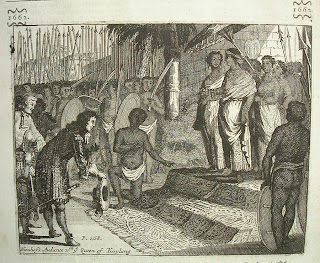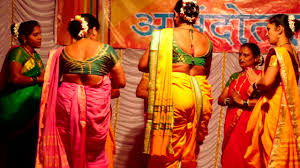Mahavir Jayanti



Mahavir Jayanti
Mahavir Jayanti is observed and celebrated byJains all over the world to commemorate the birth anniversary of Lord Mahavira. Mahavir the son born to Siddhartha and Trishall i n 599 Bc, as per Swetambars. It is beleived that Mother Trishala had 14-16 auspicious dreams during her preganancy and the astrologers predicted that the child born will be a great emperor or Theetankar. The entire Jain community through out the country celebrates Mahavir Jayanti. On this auspicious day, grand chariot processions with the images of Mahavira are taken out, rich ceremonies, fasts and charities are observed, The Jains observes religious events on this day. They visit the sacred sites and worship the Teerthankars on this day. The event hold special significance in Gujarat and Rajasthan due to the ancient shrines at Girnar and Palitana In Kolkata, too this festival is celebrated with great fervor at the Parasnath temple. Even at Pawapuri in Bihar Mahavir Jayanti holds a special significance. Lord mahavir was a great teacher, his philosophies and teachings taught mankind the true path of happiness. His teachings complete non-violence and importance of austerity showed us the path to achieve salvation and spirituality. According to the Gregorian calendar, the Mahavir Jayanti festival falls during the period between March and Apri
At various places, lectures are conducted to impart the teachings of Mahavir Swami. The basic idea is to make people understand the real virtues of life. On this day, people spend time meditating and praying to the Lord. People give donations to save the cows from getting slaughtered. People come from different parts of the country and throng the ancient temples located at Girnar and Palitana in Gujarat on the Jain festival of Mahavir Jayanti.
Lord Mahavira had a strong faith in the theory of Karma and he always said that, it is the karma that decides your destiny. Karma means the deeds that you do, which includes both, good as well as bad. The philosophies and teachings of Lord Mahavira are universal truths that are applicable even in the modern world that is plagued by corruption and violence. He was of the opinion that, in retaliation to anti social elements, if you start behaving aggressive; you will never be able to find any solution. So, it is always better to come to an amicable solution by following the path of non violence. Ultimately, it is Ahimsa that paves way for maintaining harmony. So, if you wish to live your life in a peaceful manner and if tranquility is what you are searching for, then adopt the philosophy of the great personality Lord Mahavira.
Mahavir Swami was the last Tirthankara of the Jain religion. Also known as Arihants or Jinas, these Tirthankaras are said to be the Gods of Jains. They are just like any other human being who is born on this earth. But, the difference lies in the fact that, they attain enlightenment through self realization and meditation.
Lord Mahavira made an incredible contribution in laying down the right code of conduct for Jains. He taught people five main ethical concepts, which are as follows:
Lord Mahavira made an incredible contribution in laying down the right code of conduct for Jains. He taught people five main ethical concepts, which are as follows:
Nonviolence (Ahimsa) - he taught his people to follow the path of non violence and live harmoniously with each other.
Truthfulness (Satya) - he always preached people to speak the truth and not to deceive anyone.
Chastity (Brahmacharya) - he taught people not to indulge in sensual pleasure.
Non-stealing (Asteya) - he taught people not to keep an eye on other's property.
Lord Mahavira Teachings:
Always speak the truth
Control over oneself is very important
There is no point accumulating loads of wealth that you can't even spend.
Be honest to all.
Follow the path of non violence.
Be compassionate towards living beings.










Comments